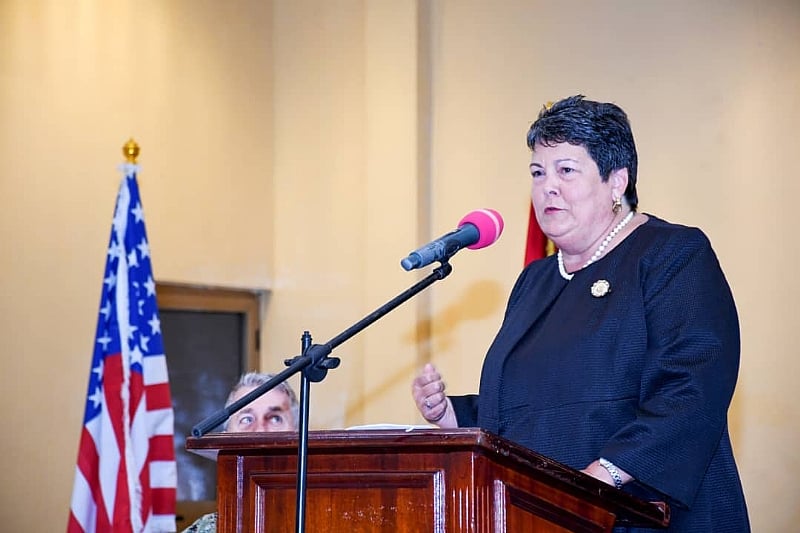The recent announcement of a 10% tariff on exports to the United States has sparked concern in Ghana, a nation with significant trade ties to the U.S. However, U.S. Ambassador to Ghana, Virginia Evelyn Palmer, has moved to allay these fears, assuring Ghanaians that the tariff will not substantially disrupt the strong bilateral trade relationship. This new tariff is part of a broader, controversial shift in U.S. trade policy under the Trump administration, which includes a 34% levy on Chinese imports and a 20% tax on goods from the European Union. These protectionist measures, defended by President Trump as essential for safeguarding American manufacturing, have ignited global trade tensions and prompted criticism from international leaders.
Ambassador Palmer emphasized the robust nature of the U.S.-Ghana trade partnership, currently valued at over $3 billion in bilateral trade and investment. She expressed confidence that Ghana’s key exports, specifically gold and gas, would remain competitive in the global market despite the tariff adjustments. The Ambassador underscored the multifaceted relationship between the two nations, highlighting historical, cultural, and economic ties as the foundation of their enduring partnership. She reiterated the U.S. commitment to maintaining existing aid programs and fostering prosperity in both countries through continued trade and investment.
The new tariff, while raising concerns in Ghana, represents a small percentage increase on existing trade flows. Ambassador Palmer’s reassurance stems from the understanding that Ghana’s primary exports, gold and gas, are strategically important commodities with consistent global demand. Furthermore, the U.S. remains a major consumer of these resources, suggesting that the impact of the 10% tariff will likely be absorbed by the market without drastically altering trade volumes. This assessment relies on the assumption that the demand for these essential commodities will remain relatively inelastic, meaning that even with a price increase due to the tariff, demand will not significantly decrease.
President Trump’s justification for the widespread tariffs rests on the premise of protecting American industries and jobs. He argues that years of unfair trade practices by other countries have put American manufacturers at a disadvantage. By imposing tariffs, he aims to level the playing field and encourage domestic production. This protectionist stance, however, has been met with widespread criticism, with many economists arguing that tariffs ultimately harm consumers through higher prices and can spark retaliatory measures from other countries, leading to trade wars and global economic instability.
Despite the potential for negative economic consequences, Ambassador Palmer’s message to Ghana emphasizes the continued importance of the bilateral relationship. Her assurance that existing aid programs and trade collaborations will remain unaffected suggests a strategic effort to minimize any potential fallout from the tariff implementation. This approach aims to maintain strong diplomatic ties with Ghana while simultaneously pursuing the broader U.S. trade policy objectives. The ambassador’s emphasis on the existing strong trade relationship, the continued aid programs, and the importance of Ghana as a trade partner serves to reassure the Ghanaian government and public that the impact of the tariff will be minimal.
The situation underlines the complex interplay between domestic economic policy and international relations. While the U.S. pursues its protectionist agenda, it also seeks to maintain strong relationships with key trading partners like Ghana. Ambassador Palmer’s role is crucial in navigating this delicate balance, reassuring allies while implementing potentially disruptive policy changes. The long-term effects of this tariff policy on U.S.-Ghana relations, as well as on the global trade landscape, remain to be seen. The success of this delicate balancing act will depend on a variety of factors, including the global demand for Ghana’s key exports, the response of other countries to U.S. trade policies, and the overall health of the global economy.


